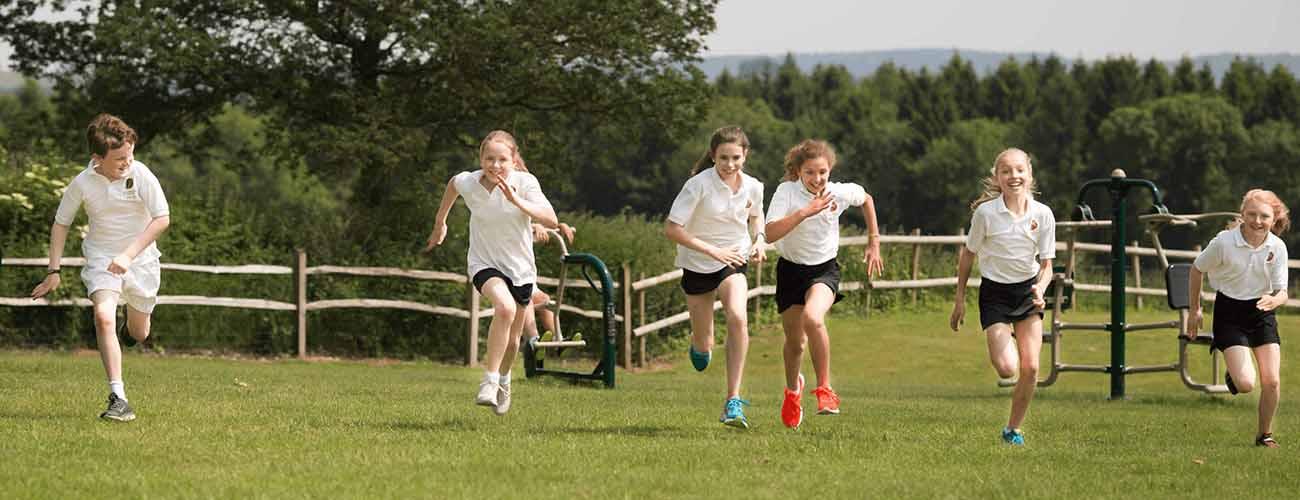
From the immediate to the lifelong benefits, find out why exercise is so critical for children and their physical and mental health.
7th December 2022
Exercise is a key part of a child’s life. Keeping physically active is so much healthier for young bodies and minds than time spent sitting watching TV or playing computer games.
Getting active raises the heart rate, strengthens the muscles of the body and promotes good mental health as well.
Current guidelines recommend that children and adolescents aged 6 through to 17 need to be active for 60 minutes every day.
Here we look at six reasons why exercise is so important for our children.
According to the World Health Organization (WHO), childhood obesity is “an urgent and serious challenge” in many countries across the globe. Whereas in 1990 there were approximately 32 million obese children between 0 and 5 years old, it is estimated that 41 million children under the age of 5 years were overweight or obese in 2016.
The good news is, healthy children become healthy adults and introducing exercise in childhood programmes the way the body metabolizes calories. This reduces the long-term risks of obesity, high cholesterol, diabetes, high blood pressure, bone and joint problems and breathing difficulties.
The NHS recommends children try to spread their exercise throughout the day and try to do two types of activity throughout the week: aerobic and strength.
As soon as a child starts to take regular, daily exercise there are immediate positive effects. In terms of muscular fitness, muscles become strong and they start to develop endurance. Cardiometabolic health improves which helps maintain normal blood sugar levels. Exercise strengthens your bones, regulates body weight and reduces body fat.
Keeping active often is also amazing for brain health and it reduces the risk of depression and anxiety as well as improving academic performance through an improvement in memory and attention span. Aerobic fitness keeps the heart healthy, improving blood pressure and keeps the lungs healthy. When your lungs are healthy, you keep a large breathing reserve. You may feel ‘out of breath’ after exercise, but you will not be ‘short of breath’.
Children who get enough exercise find that their willingness to participate in sports activities both in and out of school is greater. They are less likely to feel they cannot achieve something but more inclined to give it a go - as they expect to be successful.
Losing in sports, for example or failing to catch the ball, teaches children valuable lessons on perseverance and resilience, not giving up, and how to cope with disappointment. These lessons in mental strength can be used throughout the whole of their childhood and well into their adult life.
Regular exercise can also support and maintain a healthy weight, which in turn promotes good self-esteem.
Exercise releases endorphins in the brain which make us feel happy and content.
Many studies have shown that exercise reduces stress and depression as well as giving us a more positive outlook on life.
Exercise gives you more energy, creates happier moods and even helps you have a good night’s sleep – critical around exam time!
Physical fitness and exercise helps young people develop important skills such as conflict resolution, cooperation with peers and social skills such as leadership and fine tuning motor skills.
Healthy behaviours are a positive side effect of exercise while also increasing social skills necessary for development.
Socialisation through exercise and sport teaches children about teamwork, creating new friendships, trying something new, developing emotional maturity and becoming a better communicator and listener too!
Studies show that regular physical activity in childhood through cardiorespiratory fitness is directly related to the structure and function of the developing brain, especially regions such as the hippocampus, which is involved in memory, and the prefrontal cortex, which takes care of our ability to think, reason and commit purposeful action based on thought and not impulse.
Physical activity also immediately boosts the brain's dopamine, norepinephrine, and serotonin levels—all of which affect focus and attention – helping concentration in class.
In fact, schools are ideally placed to support a child’s introduction to daily exercise, which is why we receive many enquiries about our Fresh Air Fitness outdoor gym equipment for schools. Exercise supports cross curricular attainment and benefits secondary school aged children just as much as primary school aged children. Our adult range can be installed into a senior school and used from 11+. Our children’s range is sized to meet the precise needs of primary school aged pupils – and is a lot of fun to use! For children, whatever the activity it should be fun for them, and that’s where we come in.
If you would like to find out more about how to install an outdoor gym in your school, complete our brief enquiry form or speak to our friendly team on tel. 01483 608 860. Fresh Air Fitness are specialist outdoor gym provider. We are here to help answer any questions you may have.
Back to all blog posts